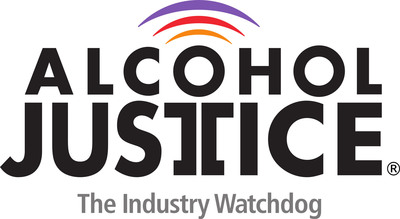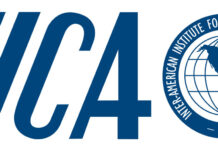LOS ANGELES, Jan. 20, 2020 /PRNewswire-HISPANIC PR WIRE/ — Alcohol Justice is reporting that hundreds of L.A. residents attended a Los Angeles Drug and Alcohol Policy Alliance (L.A.DAPA) press conference Friday, January 17, 2020 at Los Angeles City Hall to express their disappointment that Planning and Land Use Management (PLUM) Committee Chair Marqueece Harris-Dawson will not take action that would protect communities from alcohol-related harms.

The community is demanding the Alcohol Restricted Use Subdistrict (ARUS) Motion be placed on the agenda at the PLUM Committee. ARUS would allow residents to decide whether more alcohol-related businesses (bars, nightclubs, liquor stores) should open up in high crime areas, near neighborhoods already oversaturated with bars and/or liquor stores, or near churches, parks or schools.
Chair Member Marqueece Harris-Dawson abruptly shut down any further movement on ARUS, which had been languishing in his committee since 2017. Public health advocates expected that a feasibility study would be the next action. Since ARUS was introduced nearly three years ago, activists and advocates rallied, protested and testified to emphasize how ARUS would benefit areas oversaturated with alcohol businesses. Health and safety advocates held meetings with individual Council Members and none of them expressed any reservations about agreeing to a feasibility study.
The council file on ARUS (17-0117) contains more than 300 letters and petitions from Neighborhood Councils, non-profits and community organizations pleading with Council to take action on ARUS. The latest letter of support was filed just two months ago (11/11/19). But Harris-Dawson said no further actions would be allowed on this issue, which means the motion expires on January 31.
This decision is disappointing and shocking, in light of new data from the National Institutes of Health showing that nearly 1 million people in the U.S. died of alcohol related causes in the last 20 years due to increased alcohol consumption. Alcohol problems also affect entire communities, as described in new Alcohol Outlet Factsheets developed by independent research firm Harder and Company.
The Factsheets, released last October, reveal that all 15 City Council Districts have areas where alcohol density exceeds California Alcohol Beverage Control (ABC) guidelines by 300 percent or more. Additionally, the Alcohol Outlet Factsheets show correlations between alcohol density and crime. Council District 4 had the biggest alcohol density, with a whopping 70% of census tracts that exceed ABC guidelines. Of that 70%, 46% have above average crime rates. Conversely, 87% of census tracts in CD4 that met ABC guidelines have at or below average crime rates. Loren Bustillo is a resident of Koreatown, which is part of District 4.
“I see the damage that alcohol has caused in my community, since I have seen people intoxicated in public areas around liquor stores,” stated Loren Bustillo, resident of Koreatown (Council District 4). “The behavior of these people increases crime, violence and theft, causing more damage to families. Alcohol makes the community feel insecure.”
Miriam Castro lives in Council District 1 (Pico-Union/Westlake) where 42% of the area exceeds ABC guidelines. “On many occasions when I walk to buy necessities for my home, I have had to evade intoxicated people in order to avoid being attacked. The same goes for young people leaving schools, and families who walk to their homes. ARUS (17-0117) is important to the communities and me because it protects my neighborhood and community from alcohol-related incidents. It will help us regain control of the well-being and security of our community,” Castro added.
Even teenagers see the need for action to prevent additional liquor stores in areas where there are already significant numbers of alcohol businesses. “I live next to a liquor store and I see a lot of homeless people around drinking,” said 14-year-old Anthony who attends the Variety Boys and Girls Club after school program in Boyle Heights. Anthony and 200 of his peers signed petitions demanding action on ARUS by the City Council.
With ARUS still a long way from implementation, public health and safety advocates are only asking for a feasibility study at this point. “Even after numerous news releases, meetings, research presented and substantial community support, no action has been taken,” said Brenda Villanueva, Co-Chair of the L.A. Drug and Alcohol Policy Alliance (L.A.DAPA). “We are asking that ARUS be agendized by the PLUM Committee to open up the needed discussion of mitigating alcohol density in the neighborhoods of Los Angeles.”
Despite the research linking crime to high alcohol density throughout Los Angeles, at least 500 alcohol licenses are currently waiting for approval. According to the California Business Code, alcohol licenses should be limited based on a ratio of population per census tract in order to protect public health and safety.
Read More: Links to Alcohol Fact Sheets: https://bit.ly/367bZBK
|
CONTACT: |
Jorge Castillo 213 840-3336 |
|
Michael Scippa 415 548-0492 |
Logo – https://mma.prnewswire.com/media/147418/alcohol_justice_logo.jpg
SOURCE Alcohol Justice







